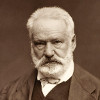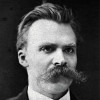“ True happiness consists in decreasing the difference between our desires and our powers, in establishing a perfect equilibrium between the power and the will. Then only, when all its forces are employed, will the soul be at rest and man will find himself in his true position. ”
Jean-Jacques Rousseau, Emile, or On Education (1762). copy citation
| Author | Jean-Jacques Rousseau |
|---|---|
| Source | Emile, or On Education |
| Topic | happiness power |
| Date | 1762 |
| Language | English |
| Reference | |
| Note | Translated by Barbara Foxley |
| Weblink | http://www.gutenberg.org/cache/epub/5427/pg5427-images.html |
Context
“The mere limitation of our desires is not enough, for if they were less than our powers, part of our faculties would be idle, and we should not enjoy our whole being; neither is the mere extension of our powers enough, for if our desires were also increased we should only be the more miserable. True happiness consists in decreasing the difference between our desires and our powers, in establishing a perfect equilibrium between the power and the will. Then only, when all its forces are employed, will the soul be at rest and man will find himself in his true position.
In this condition, nature, who does everything for the best, has placed him from the first. To begin with, she gives him only such desires as are necessary for self-preservation and such powers as are sufficient for their satisfaction.”
source



